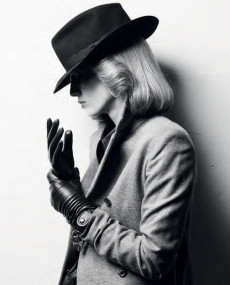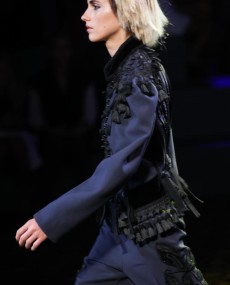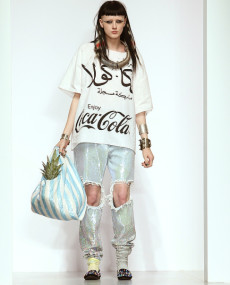Rene Lalique: The Art of Jewelry
René Lalique was a revolutionary designer and the most important jeweler of the Art Nouveau period who made everything from perfume bottles and fountains to luxury car ornaments. His work was ground-breaking for its time for he was famous for using unconventional materials and techniques as well as playing with innovative forms.
His pieces are valued for the artistic inventiveness and prettiness as well as the ability to divulge the distinguishing characteristics of a particular material he used. He was the first designer to introduce semi-precious stones, glass and natural materials such as horn which he cleverly combined with traditional material creating unique cutting-edge jewelry. Being the main international style during his early career, Art Nouveau art and design had a major influence on his work. His contribution to Art Nouveau movement was immense and made him one of the most celebrated French jewelers of all times. Among other objects, he designed walls of lighted glass and glass columns for the dining room and grand salon of the luxurious ship SS Normandie. He was much loved everywhere from royal courts to artists and designers around the globe.
He learned the techniques of jewelry manufacturing being a trainee at Louis Aucoc, while at the same time he studied art at the Ecole des Arts Décoratifs in Paris. He also had lessons in sculpture from the well-known sculptor Lequien. When he started working in the jewelry industry he worked for famous jewelers such as Cartier, Jacta and Boucheron, until he took over the workshop of Jules Destape in Paris in 1886 and started making his own jewelry line.
His first daring attempt to contest boundaries of jewelry design was when he produced his first glass object in early 1890s. Back then it was unthinkable to use anything but precious stones for making jewelry. However, glass remained to be his favorite material ever since. It was merely a coincidence that Lalique later became the famous perfume bottle designer for he opened his first retail shop in Paris at 24 Place Vendome, right next door to perfume manufacturer Francois Coty. From jewelry and perfume bottle design Lalique moved on to creating other decorative objects such as vases, lamps or table ornaments.
His talent was recognized and he was awarded the prestigious “Croix de Chevalier de la Légion d’Honneur” in 1897. He became internationally famous and there were many attempts to copy his style.
In 1920s he participated in many important exhibitions in Paris with his glass design such as Arts Décoratifs in 1925, the Colonial in 1931, the Rétrospective in the Pavillon de Marsan at the Musée des Arts Décoratifs in 1933, and the Paris World Fair in 1937. During this period, he participated in big architectural projects for the Compagnie Internationale des Wagons-Lits, and others such as St Matthew’s church in St Helier, Jersey.
His work is very highly valued today and being sold at auctions for huge prices. Lalique auctions are being held at Bonhams in London, Christies in New York, the Drouot Auctions in Paris and Rago Arts and Auction Center in New Jersey. Currently the highest price ever paid for his piece was for his fountain which was purchased for 1.100.000 USD in 1991. Prices remain to be very high for his works even today.





Leave a reply